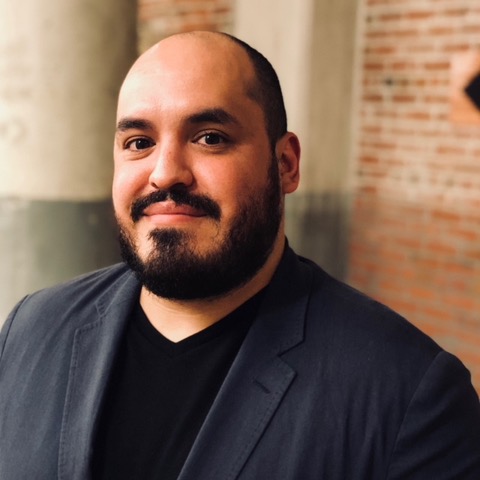The Five Major Takeaways From The Congressional Sports Betting Hearing

The DraftKings Sportsbook is now live in New Jersey. Visit the DraftKings Sportsbook mobile app here for full details.
Congress appears to believe it has a role to play when deciding on federal sports betting regulations — at least for now.
Thursday’s hearing was with the House Subcommittee on Crime, Terrorism, Homeland Security, and Investigations. Following it, many lawmakers appeared to have walked away with more questions than answers.
Chairman Jim Sensenbrenner (R-Wisc.) in his closing remarks said, “for Congress to do nothing is the worst possible alternative.”
The anticipated hearing was titled “Post-PASPA: An Examination of Sports Betting in America.”
Here are five points from the 90 minute hearing on Capitol Hill.
1. The leagues remain hell-bent on ‘intellectual property’ concerns
A federal framework is necessary, says the&
nbsp;National Football League. However, it has to include some form of official data usage and protection for its “intellectual property,” the league insists.
“As we go forward, we believe the federal government is the only entity that can protect the integrity of the game – as opposed to the state level,” said Jocelyn Moore, executive vice president of Communication and Public Affairs for the NFL.
“We are asking for core standards, not sweeping legislation,” Moore said in front of about 60 spectators on Thursday. “There are things everyone should be able to agree with.”
Stakeholders present included Sara Slane, senior vice president of public affairs for the American Gaming Association. Slane and many others agree that upholding integrity and protecting consumers are high on the priority list.
Slane said making sure customers are placing bets in a safe and secure way is a top priority.
Clearly, there are rules that could be on a list of “core standards” that each state looking to pass sports betting bills could reference.
Most of these are included in Moore’s written testimony.
Regulation topics include enforced age limits on sports betting and strong state regulatory bodies. This, in addition to the inclusion of responsible gambling resources, all appear like very reasonable requests.
Lines differ when professional sports leagues have grandiose requests. These are using official league data or authority deciding which bets to offer.
2. Leagues are saying states can’t do a good job on sports betting
Moore made an argument that states that are rushing to pass legislation threaten the integrity of sports.
“The absence of clear sports betting standards threatens the integrity of our nations sporting contest,” Moore said. “We are witnessing a regulatory race to the bottom.”
Moore says sports betting issues cannot fence into state lines. Becky Harris, chair of the Nevada Gaming Control Board said, strongly disagreed.
“I would disagree that we are undergoing a race to the bottom. States do a good job and Nevada has a regulatory structure that has been refined for decades,” Harris said.
The implication here is that states are moving too quickly to pass legislation without understanding the industry.
But in 2018, only New Jersey, Rhode Island and West Virginia passed bills. Delaware started offering sports betting under existing law, and Mississippi passed a law in 2017 and enacted regulations this year. New York and Pennsylvania are still awaiting official regulations to be released before sports betting comes online.
It is a stretch any of that represents a “rush.” New Jersey has been working on the idea of having sports betting dating back to 2012.
Many states are looking at passing bills following the repeal of PASPA, including Illinois, Indiana, Kansas, Kentucky and Ohio.
The race truly begins in 2019. More states plan on introducing legislation to legalize and regulate sports betting.
3. Anti-gambling narratives aren’t going away
Jon Bruning is a counselor for the Coalition to Stop Internet Gambling (CSIG) and former Nebraska attorney general, and presented a common hypothetical from gamlbing opponents.
In his example, a minor could potentially steal a parent’s credit card. They could log on to a foreign gambling site and proceed to spend thousands of dollars. The threat online gambling poses to minors was easily one of the most repeated talking points from Bruning and Les Bernal, national director for Stop Predatory Gambling.
However, know-your-customer protocols in other countries with regulated online gambling — in addition to NJ and other states launching online gaming — makes the scenario painted by Bruning and Bernal unlikely. There are not widespread examples of minors gambling online at regulated sites and apps.
Certainly, it’s more likely to find minors evading age verification at offshore sportsbooks and casinos that have less stringent protocols.
House Judiciary Chairman Bob Goodlatte (R-Va.) says online gambling “a different beast” than regulation of traditional brick-and-mortar facilities.
Bruning did credit Harris and the state of Nevada on the outstanding work they do when monitoring brick-and-mortar casinos. However, he hammered home his point by saying, “only through federal intervention can we hold foreign enterprises accountable.”
From Nevada’s standpoint, the only way a player can place sports bets online is if they sign up in-person beforehand.
4. UIGEA is still on Congress’ mind
“UIGEA is not working because it is not being enforced,” Bruning said of the Unlawful Internet Gambling Enforcement Act.
This point, along with the lack of enforcement of the Wire Act, were talking points from the former Nebraska attorney general.
UIGEA is a bit complex but it boils down to prohibiting operations from knowingly accepting payments from people who wagered online in an unlawful manner.
“Congress has to enact legislation to protect citizens and to preserve the rights of states that don’t enact sports betting – that is bound to take years and not months,” Bruning said.
Goodlatte asked the panel members if it was a good idea to modernize the Wire Act but received only silence.
It did not appear that many of the Judiciary committee members were against sports betting. In fact, most agreed that Congress had no role to play in brick-and-mortar regulations. But when it came down to online gambling, that’s where the real issues failed to get answers.
5. Everyone’s concerned about integrity
Rep. Hakeem Jeffries (D-NY), posed the question, do certain types of bets carry a greater risk?
Harris said no specific bet that drives the illegal market.
“There is an assumption that there is an assortment of exotic wagers that are offered,” Harris said. Harris noted that in Nevada, the types of bets offered are not as wild and crazy as people think.
“You are more likely to see a bet like, what will be the score at the end of the first half,” Harris said. “In Nevada, we don’t offer bets on if this field goal, will the ball go to the left side of the up-rights or the right side.&rd
quo;










